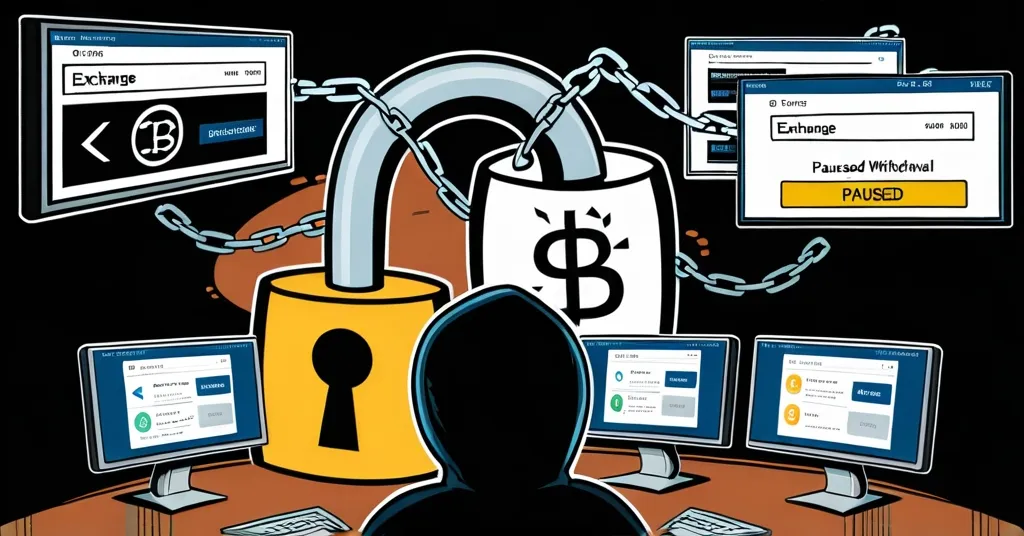CZ Warns Exchanges After $1.4B Bybit Hack: Pause Withdrawals to Combat Lazarus Group Attacks

CZ Warns Crypto Exchanges of Hack Targeting Multi-Sig Cold Storage After Bybit Hack
In a significant security breach, Bybit suffered a hack resulting in the theft of over $1.4 billion in cryptocurrency, prompting a stern warning from Changpeng Zhao (CZ), the former CEO of Binance. CZ has highlighted a new hacking pattern targeting multi-signature (multi-sig) cold storage solutions, with the North Korean hacker group, the Lazarus Group, identified as the perpetrator.
- Bybit loses over $1.4 billion in a hack
- Lazarus Group behind the attack
- Multi-sig cold storage targeted
- CZ suggests pausing withdrawals post-breach
The Bybit hack on February 21 sent shockwaves through the crypto community, with the Lazarus Group executing this audacious theft. The hackers stole a vast array of ERC-20 tokens, which are a type of cryptocurrency token on the Ethereum blockchain. This incident is part of a broader pattern, with other exchanges like WazirX and Phemex also falling victim to the Lazarus Group’s cunning.
The hackers’ method involved manipulating the front-end interface to display one transaction while the real transaction being signed was different. This deceptive tactic allowed them to siphon funds undetected, even with advanced multi-sig cold storage solutions in place. Multi-sig cold storage refers to a security measure where multiple keys are required to authorize a transaction, keeping funds offline and secure. It’s a wake-up call that even the best security measures can be breached by state-sponsored cybercriminals.
In response to this alarming incident, CZ has issued a call to action for the crypto industry. He suggests that exchanges should consider pausing withdrawals immediately after a security breach. This move, while potentially causing panic among traders, allows time to understand the breach, assess which devices were compromised, and ensure the system is safe before resuming operations. CZ’s past advice on security underscores the urgency of this suggestion.
The Lazarus Group’s involvement signifies the increasing sophistication and state-sponsored nature of cyber attacks on crypto exchanges. Their tactics have evolved to prioritize speed and automation, overwhelming compliance teams and law enforcement with rapid, high-frequency transactions across multiple platforms. This evolution highlights the need for heightened security measures across the industry, as well as community vigilance in tracking and blocking transactions linked to the group’s laundering efforts.
The Bybit hack is a stark reminder of the ongoing battle between security measures and the ingenuity of hackers. While it raises concerns about user trust and the industry’s reputation, it also drives the push for continuous improvement in security protocols. As the crypto world moves forward, staying ahead of such threats will be crucial for the future of decentralized finance.
And let’s not forget, if hackers were a crypto, they’d be trading at an all-time high right now. But seriously, it’s time for the industry to step up its game and keep those funds safe. Decentralization and freedom are great, but only if we can trust the systems in place.
The Lazarus Group’s involvement in these hacks is not just a local issue for Bybit or other exchanges; it’s a global concern. North Korea’s cybercrime campaign has netted them over $5 billion since 2017, using these funds to sustain their regime despite international sanctions. It’s a stark reminder that in the world of crypto, security is not just about protecting assets but also about safeguarding the integrity of the entire financial revolution.
Key Questions and Takeaways
What is the new hacking pattern targeting crypto exchanges?
The new hacking pattern involves sophisticated methods like front-end manipulation and targeting vulnerabilities in multi-signature cold storage solutions, as demonstrated by the Lazarus Group’s attacks on exchanges like Bybit.
Which group is responsible for the Bybit hack?
The North Korean state-sponsored hacking group, the Lazarus Group, was confirmed by the FBI to be behind the Bybit hack.
Why does CZ suggest pausing withdrawals after a security breach?
CZ suggests pausing withdrawals to allow exchanges time to assess the breach, identify compromised devices, and secure their systems before resuming operations, despite the potential for causing trader panic.
What are the potential risks of pausing withdrawals?
Pausing withdrawals can lead to panic among traders, as seen in past incidents like the Binance withdrawal pause in 2019, which resulted in a surge of deposits once operations resumed.
What is the significance of the Lazarus Group’s involvement in these hacks?
The Lazarus Group’s involvement underscores the increasing sophistication and state-sponsored nature of cyber attacks on crypto exchanges, highlighting the need for enhanced security measures across the industry to combat such threats.



